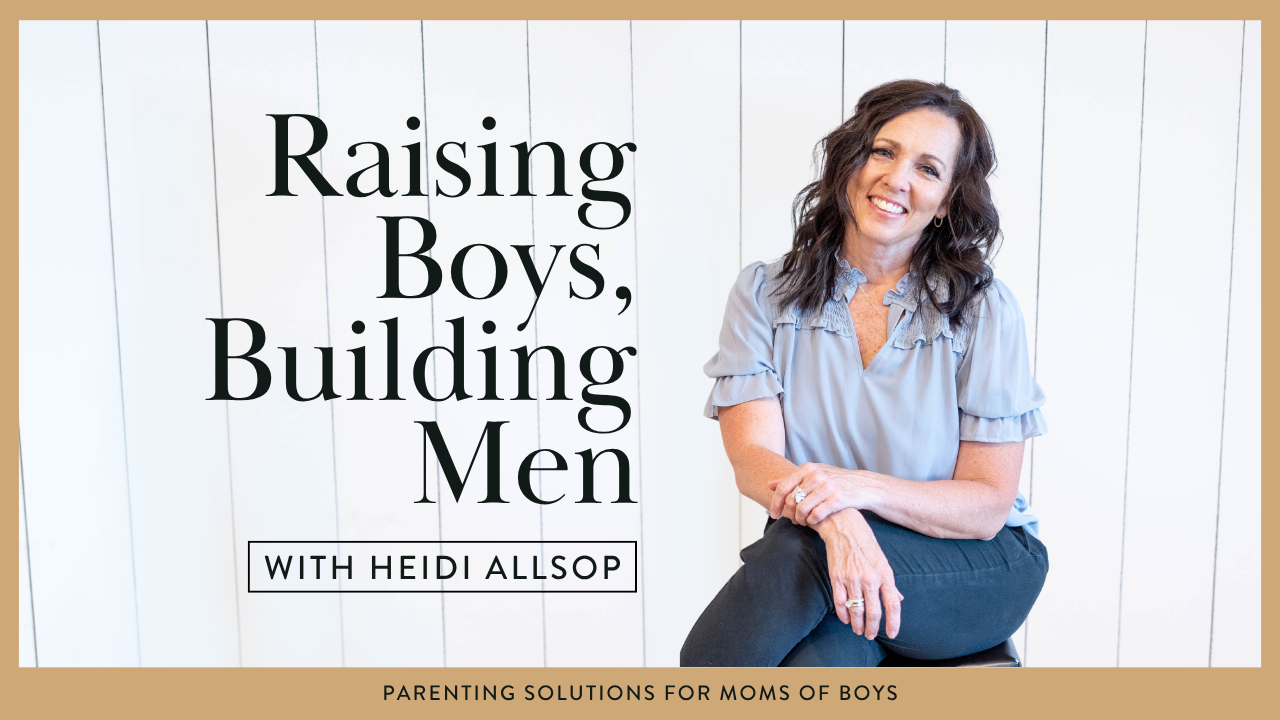What to do when You Don’t Parent Like Your Partner: How to Work as a Team for Your Teen
Sep 29, 2025
Picture this: Your 15-year-old son asks to hang out with friends until midnight. You immediately think about safety and connection "Who's driving? Will there be supervision?" Meanwhile, your partner's first thought is about responsibility "Did he finish his homework? What time does he have practice tomorrow?"
Sound familiar?
Here's what I want you to know right now: You're not broken. Your relationship isn't doomed. And your son isn't going to turn out terrible because you parent differently.
In fact, research shows that boys actually benefit from seeing different parenting approaches, as long as you stay aligned on the big stuff. Today, I'm sharing why those differences aren't the problem you think they are and exactly how to parent as a united front, even when you don't always agree.
Why Parenting Your Teenage Son Differently Is Actually Normal (And Healthy)
You Were Raised in Different Homes
Think about it: You grew up speaking your family's "language" of love, discipline, and expectations. Your partner grew up speaking theirs.
Maybe you grew up in a home where feelings were discussed over dinner every night. Your husband might have grown up where problems were solved with action, not conversation.
Neither approach is wrong. They're just different.
Your Son Benefits From Multiple Perspectives
Here's the part that might surprise you: Children with coordinated but not identical parenting actually develop stronger problem-solving skills and better adaptability.
Boys especially benefit from learning that people can think differently yet still work together. When your son sees you value emotional connection and his dad values practical solutions, he learns to seek out different strengths for different situations.
I've watched this play out in my own home with five sons. They come to me when they need to process feelings or think through decisions. They go to their dad when they need practical advice or solutions.
Don't tell him I said this, but sometimes Brent's one-sentence response was more impactful than my 10-minute lecture.
When Different Parenting Styles Become Dangerous for Your Teenage Son
Not all parenting differences are created equal. Here's when those differences cross the line from helpful to harmful:
Open Conflict in Front of Your Teen
When you argue about parenting tactics in front of your 15-year-old, his teenage brain sees opportunity. Remember, his primitive brain is running the show he wants to seek pleasure, avoid pain, and stay efficient.
Translation: He'll exploit those cracks in your united front.
Using Your Son as a Go-Between
Your teenage son has enough going on in his developing brain. He's trying to figure out where he fits in the world. He should never have to be the messenger between you and your co-parent.
Constant Criticism of Each Other's Approaches
Research shows that kids exposed to frequent parental conflict are at higher risk for anxiety, depression, and lower academic performance.
5 Practical Ways to Create a United Front When Parenting Your Teenage Son
- Identify Your Non-Negotiables Together
Sit down and figure out what 3 things are absolutely non-negotiable in your home. Is it:
- Respect for family members?
- Honesty about whereabouts?
- Completing school responsibilities?
In our home, respect was non-negotiable. Period. Our boys were never disrespectful to me when Brent was around because he didn't allow anyone to disrespect his wife. I reciprocated the same protection for him.
- Pick Your Battles (Both With Each Other and Your Son)
Not everything is an emergency. When I realized this truth, motherhood felt lighter. And when you feel lighter, you show up better for your teenage son.
Between you and your co-parent, decide:
- Which battles are worth fighting
- Which differences you'll let go for now
- Communicate Disagreements in Private
Never hash out your differences in front of your son. Go behind closed doors, negotiate, compromise, adjust. Then come out with a united front.
You don't have to agree on every tactic, but you should agree on the end goal: raising a respectful, responsible young man.
- Respect Each Other's Strengths
Maybe his dad excels at teaching practical life lessons. Maybe you excel at emotional support and helping your son process his feelings.
Stop trying to make the other parent parent like you.
Let your son be smart enough to seek out your individual strengths. Over time, I learned to ask Brent, "What do you think?" instead of demanding he agree with my perspective.
Between you and me, he was right a lot of the time.
- Use "I" Language Instead of "You" Accusations
Instead of: "You're too strict with him." Try: "I worry he'll shut down if we only give lectures."
Instead of: "You never back me up." Try: "I feel discounted when decisions get made without talking to me first."
What to Do When You're Really Scared About Your Teenage Son
Here's what's really happening when you're angry and frustrated with your co-parent: You're scared.
You're scared your son is messing up. You're scared he won't learn what he needs to learn. You're scared he won't reach his potential.
As mothers, we immediately look inward: "How am I messing him up? I must be a terrible mom." When that doesn't solve anything, we turn it outward: "It must be his dad who doesn't know what he's doing."
Be honest about the fear. Tell your co-parent the truth:
"I'm really scared. Our son is failing math. I'm scared we're losing connection with him. This is you and me against the problem, not against each other."
That vulnerability creates an ally instead of an enemy.
Your Mindset Reset for Co-Parenting Your Teenage Son
You don't have to be on the same parenting page for your son to thrive.
Instead of trying to fix your co-parent's style:
- Focus on what you have in common
- Improve your own relationship with your son
- Let your co-parent figure out their relationship with your son
Ask yourself:
- Am I reacting emotionally because my expectations weren't met?
- Am I more concerned about being right or solving the problem?
- Am I focused on being the perfect parent or raising a good man?
Ready to Stop Fighting About Parenting and Start Working Together?
If you're tired of feeling like you and your partner speak completely different parenting languages, you don't have to figure this out alone.
Join hundreds of other moms in our free private Facebook group where we talk about real challenges with real solutions. No judgment, no perfect parenting moments—just honest conversations about raising teenage boys.
Click here to join our free Facebook group for moms raising teenage boys →
Remember: You're Doing Better Than You Think
One disagreement won't ruin your son. If you've been fighting in front of him, if you've found cracks in your united front—that's all in the past.
You walk the way you're facing. Turn toward the direction you want to go. Start today.
Your son notices your efforts. Deep down, he loves that you love him. And when he feels like both his parents are making an effort on his behalf, he feels valued and secure.
That's the gift you're giving him when you choose teamwork over being right.
For Additional Support:
Visit our website Raisingboysbuildingmen.com HERE
Schedule a FREE Relationship Reconnection Call with Me HERE
Follow us on Instagram HERE
Grab 8 tips to connect with your son today HERE
Related Episodes You Might Like:
How to Stop Fighting With Your Teenage Son: 3 Steps to End Daily Arguments
From Conflict to Connection: How to Rebuild Trust After a Fight with Your Son









